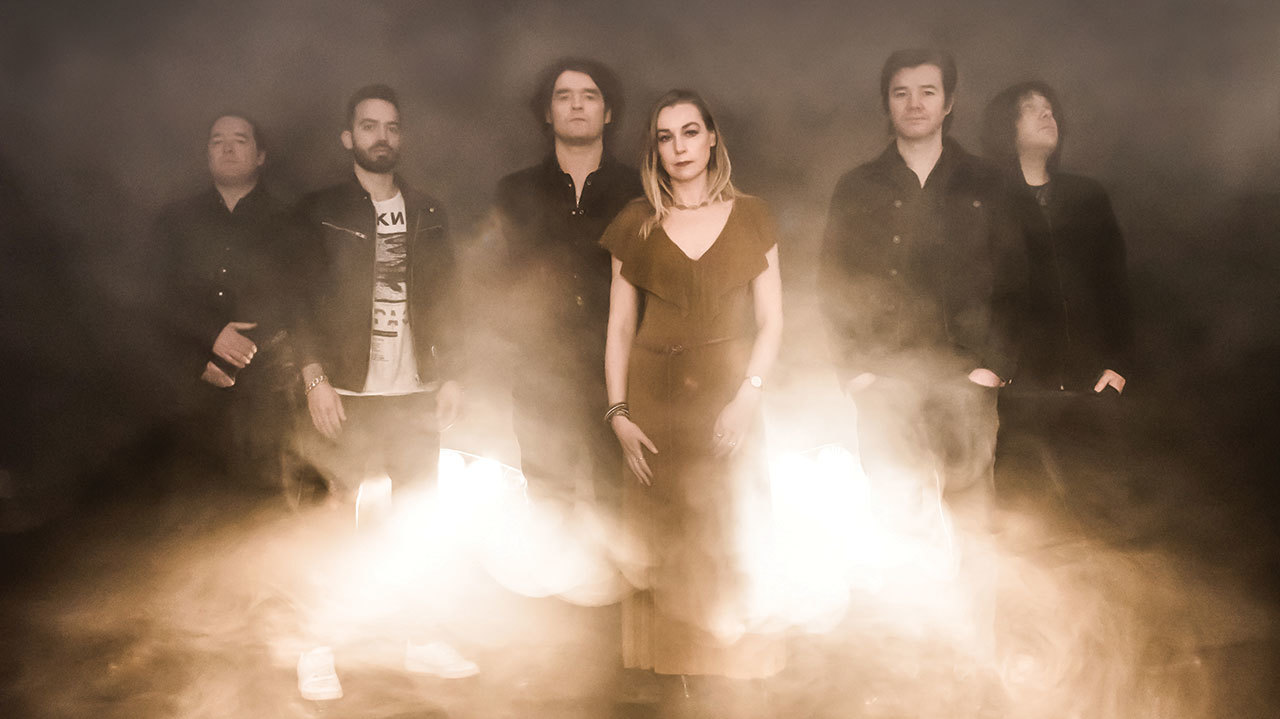It begins with the sound of a man staggering out of the sea and getting into a car. ‘The Optimist’ – ie our surrogate protagonist, and the title of Anathema’s 11th album – then leads us through a powerful story of human experience, told with incendiary progressive rock, ending with a single guitar, a small child and… erm, a budgie. Is this the final stages of a drowned man’s life, played out in reverse? Or a figment of his imagination? Or something else? Laden with gut-wrenching keys, driving guitars and drums and intriguing electronics, The Optimist doesn’t provide answers but it keeps you guessing in the best way possible.
And of course, it’s not about ‘The Optimist’ at all; it’s about the band, as all their albums are, but told in such a way that it remains shrouded in mystery, even when the music is so expansive. “A lot of it’s left unsaid,” says guitarist/keyboardist/backing vocalist Dan Cavanagh. “And most of the songs are about his thought processes, not his physical journeys. There are some things that indicate parts of his journeys, like San Francisco, but the lyrics are really his thought processes. But these lyrics we wrote aren’t actually based on this character at all, they’re based on our experiences.”
Right now, things are a little less mysterious. We’re sitting outside at a café in Canary Wharf, London, where Dan has lived for the last three years. The shiny business district is an unlikely place for an artist’s home, but imagine standing there at night listening to music – surrounded by skyscrapers after all the suits have gone home – and its inspirational side becomes clearer. Younger brother (and singer/guitarist) Vincent resides in North London with his girlfriend, French sculptor/artist Sarah Derat, following several years in Paris.
“Ahh, vin rouge, French for ‘red booze’!” he laughs as the waitress hands him a glass of red wine, obliterating any notion that his Parisian life left any pretentious marks. Dan, who quit drinking over a decade ago, chuckles and sips a latte with a side of honey. He’ll drink about five more in the next couple of hours.
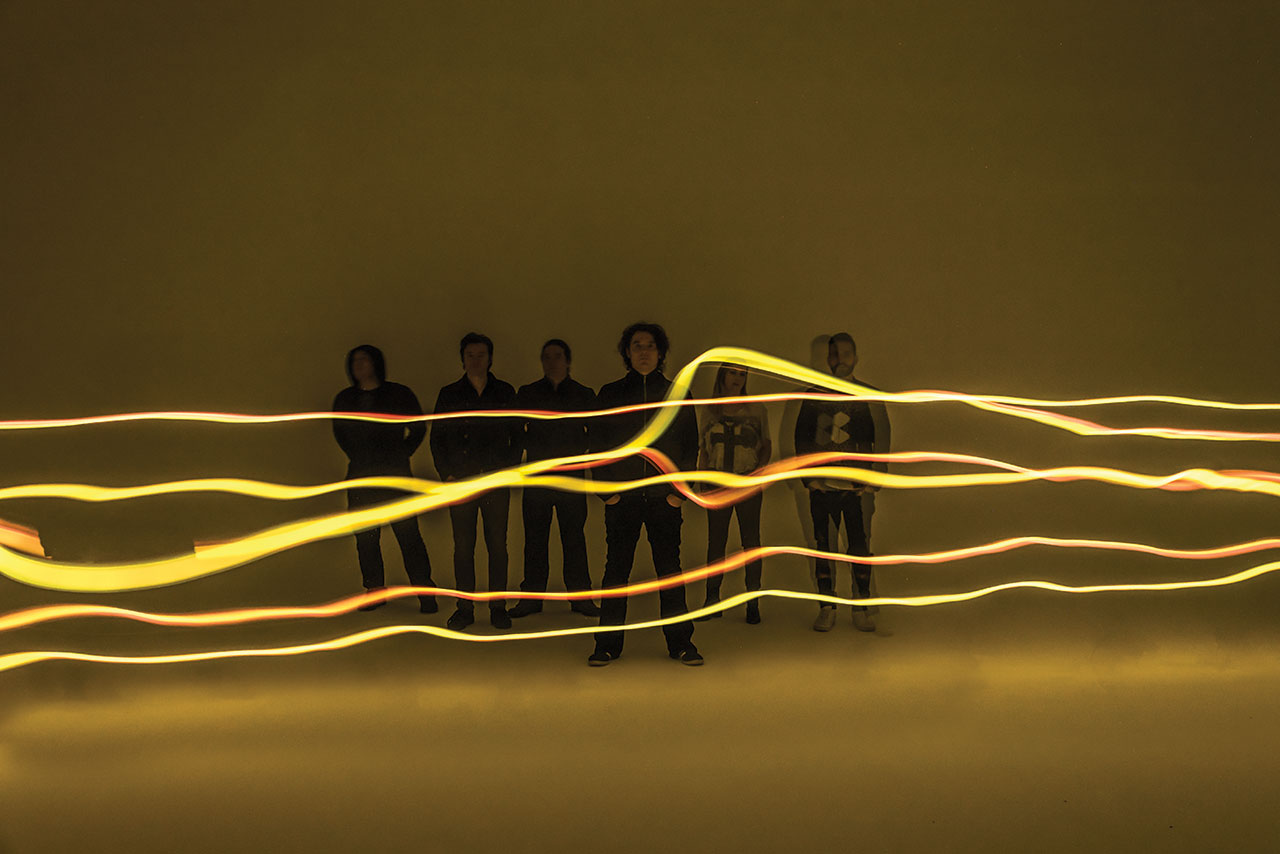
“You ain’t gonna sleep tonight,” Vincent suggests at one point, with a gentle hint of ‘protective parent’ tone under the flyaway hair and leather jacket.
“I don’t care,” Dan shakes his head. “I sleep late anyway.”
Shorter than Vincent, his curly head hidden under a black hoodie, Dan is a quietly charged bundle of vulnerability, friendliness and brooding intensity. Following a breakdown after 2014 album Distant Satellites, he’s emerged the other side of some troubled personal times. Today, however, he’s on talkative form and bursting with fervour for his band’s work. Vincent, his foremost confidante, is calmer but just as impassioned as we discuss their music. And for all their shared seriousness, there’s a lot of brotherly laughter and light.
“It’s ironic, the title,” Dan smiles wryly. “There’s nothing wrong with writing uplifting music, we might do it again one day, but this album…” They look at each other and laugh.
From turbulent roots in working-class Liverpool, via an early stint as death doom renegades, Anathema (completed by Vincent’s twin Jamie on bass, plus drummer John Douglas and sister Lee on vocals and Daniel Cardoso on keyboards) have grown into one of the progressive scene’s most commanding bands, with a compelling arsenal of albums. They’ve defied a lot of odds to get here. The Cavanaghs grew up in what Vincent has described as “a violent household”, their mother died when they were still in their teens (their father has since passed away too), Dan has been through therapy and drummer Douglas endured serious drug problems. Progressive music, for them, is “a mindset, not a genre”, allowing for a truly free, fearless approach to songwriting. With The Optimist they pick up thematically from where their sixth, 2001’s A Fine Day To Exit, left off. Not that that was the original plan.
“I don’t remember exactly how it came about,” Dan says. “I just remember that I had an image for the title song in my head. I could imagine a journey trying to escape, in a car, at night, in the slow lane, in this kind of wilderness, and it always looked like America to me because most of my favourite films are American. So I had that title track, that visual image first. And Vinnie said it should be the title. It just started to come together.”
“A Fine Day To Exit was kind of left unresolved as well,” adds Vincent. “You didn’t know how it ended, exactly, so we could pick up the story from there.”
In the 16 years since that album’s release, they’ve harnessed years of songwriting and technical experience. The result is their most moving, assured musical statement yet. It’s also the most cohesive thing they’ve ever done, without sacrificing on difficult, highly personal themes. All three songwriters, the two Cavanaghs and Douglas, draw from their own feelings and experiences in a “semi-autobiographical” way. For Dan especially, these feelings resulted in some dark songs.
“So much of The Optimist is rooted in a dialogue about mental health,” Dan explains. “It clearly is a difficult album. The last two years weren’t all that positive for me, it was very hard. I became very unhealthy mentally and physically. I pretty much took most of 2016 off just to start feeling normal again. So that’s why most of my stuff on this album is dark and moody and slow. With Springfield, which says, ‘How did I get here? I don’t belong here,’ in the story of our ‘Optimist’ surrogate he’s in a strange place, but really it’s just me wondering how the fuck this happened to me.”
Things turned around in August when Dan started taking antidepressants for the first time, on the advice of his brother. They turned out to be a game-changing influence.
“Suddenly I was able to stand back and do stuff,” Dan tells us. “It was hugely helpful. The album suddenly coalesced right in front of me, by itself.”
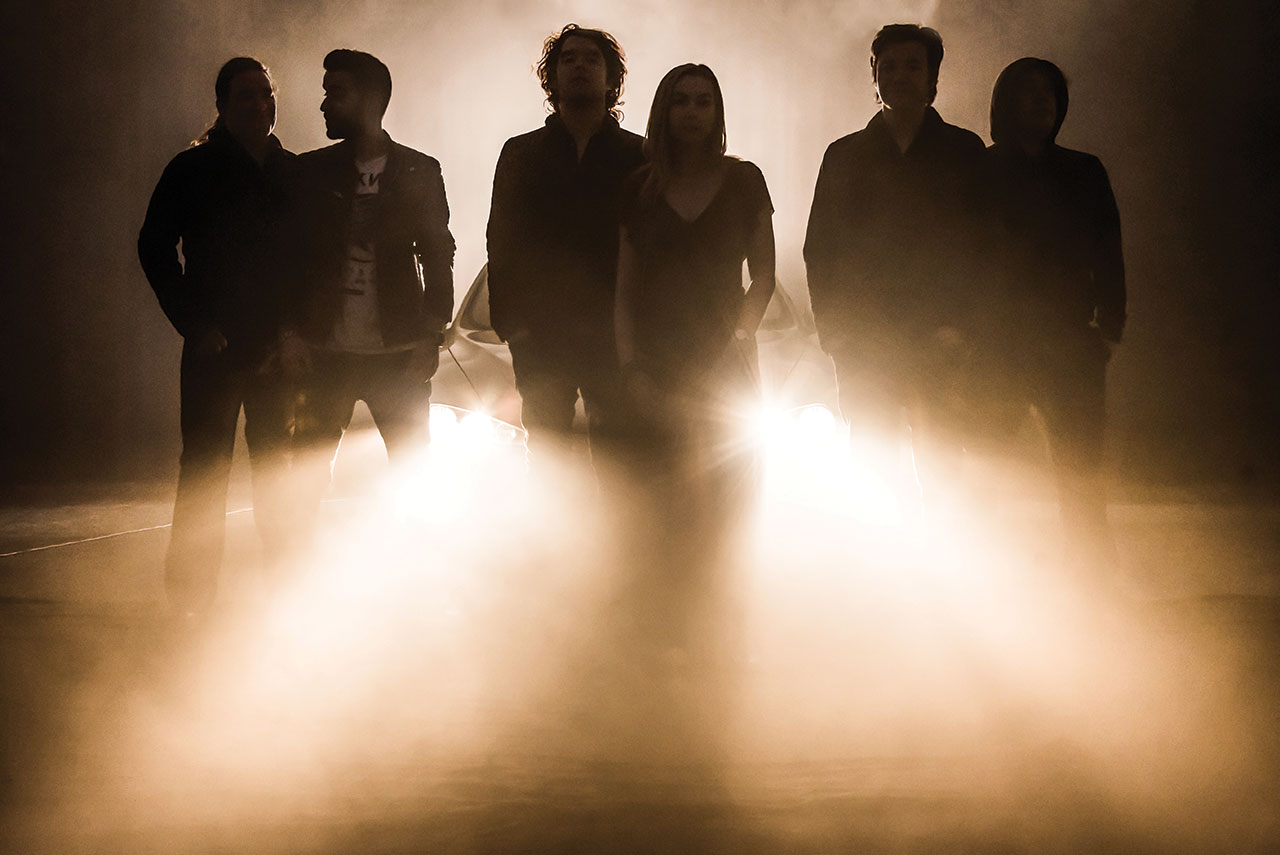
Where 2014’s Distant Satellites was, in some ways, an album of two parts – the soaring ‘classic Anathema’ part, and the weird experimental part – The Optimist seamlessly blends all their qualities. Electronic elements are clearly present from the beginning, but streamlined into the songs so smoothly that the whole record feels decidedly organic. The Cavanaghs put this immaculate balance of organic and electronic elements down to a couple of things: for starters, they gigged the songs prior to recording. Having demoed more extensively than for any previous album, the band toured for about two weeks in late 2016. It allowed them to recognise shortcomings in fledgling tunes, and amend them accordingly.
“A few things became apparent during the tour in the songs themselves,” says Dan. “The title track wasn’t complete but I only discovered it because we played it live. And then the end riff was written on the back of the bus. That song had a muted response live; we thought that was the best one, but everyone was going mad for Springfield instead.”
“The audience knew it didn’t have an ending,” nods Vincent. “They knew it before us! ‘Lads, you might wanna put an ending on that one!’”
This trial-and-error process put them in an ideal position when it came to laying down the tracks – armed with songs that had already been finessed in front of audiences. Both brothers agree it was the most prepared for an album they’d been in years. Rehearsing and recording took place in Attica Studios in rural Ireland (“We were three of us in a cottage, it was like Father Ted,” grins Vincent, “there were sheep outside walking up to your bedroom window”), following by production and final recording in Glasgow with Tony Doogan.
“Plus we know more about the technology now,” adds Vincent. “We’ve learnt more over the last couple of years. It’s in the composition really, but knowing the technology enables you to make it sound a bit more natural.”
Besides the band themselves, however, the most instrumental figure in the album’s success was producer Tony Doogan; the Scottish mastermind best known for his work with Mogwai. Following previous collaborations Anathema had with Steven Wilson and (Norwegian wünderkind) Christer-André Cederberg, working with Doogan proved to be something of a masterstroke. He and Vincent especially made an intensely focused team: leading the production process and putting in the longest hours.
“One of the greatest experiences I could draw from making this record was working with Tony,” says Vincent. “Just watching him work was amazing. Next time I meet him there are a few things I want to ask him about how he did these mixes.”
“If we work with him again I want to follow him round with a Dictaphone,” adds Dan. “He comes up with pearls of wisdom almost every day, these profound little insights into recording and producing.”
“Tony’s got this method of mixing,” Vincent continues. “It was a mix of automation and actual live mixing. It’s like a performance. The best producers will know what I mean. We’re really lucky to have worked over the past few years with Steven Wilson, Christer and now Tony; all three of them are absolute masters, and they’re real artists as well.”
For all the technical prowess of The Optimist, however, it’s the poppier sensibilities that really hold it together. The Cavanagh’s longheld affection for the likes of The Beatles and Queen translates into some of their strongest tunes in years.
“Your vocal melody, that’s what pop music is,” Vincent reasons. “It’s like when you listen to the Beatles and their vocal melodies are extremely catchy and easy. Your vocal melody is probably the most important part of your composition. You get that right and everything else can be easy from thereon.”
Equally, the impact of co-vocalist Lee Douglas – the quietly brilliant ‘little sister’ of the group – shouldn’t be underestimated. Where previous records have seen her back or harmonise with Vincent, for The Optimist she sings lead parts to stunning effect.
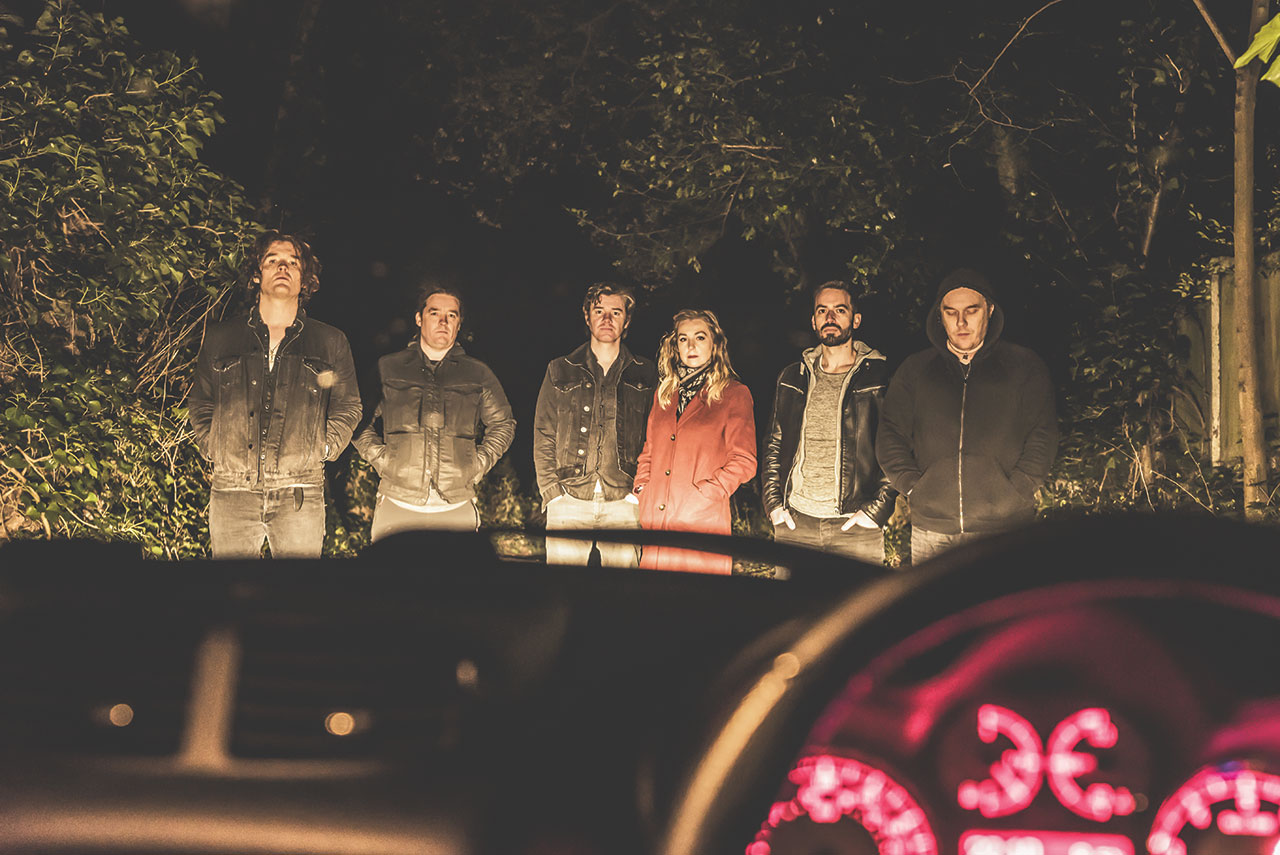
“Lee is an absolutely world class singer,” Dan nods. “We did fewer double-lead vocals and layered harmonies this time; it was one lead vocalist on one song, another on another.”
“I think that helps shape how catchy the songs are,” muses Vincent. “Less information. Your brain’s only processing a few things when you’re listening to music anyway. Tony was saying [puts on broad Scottish accent] ‘They’ve done tests! Them! Scientists!’ Basically you’re only listening to the vocal melody and the snare drum, chiefly, when you’re listening to any kind of music.”
For Vincent it was the first time he’d been able to attend the strings session, and it’s stuck with him ever since. He’s Anathema’s electronic mastermind, but the rich power of organic orchestration clearly left a mark.
“All the musicians came in and they were fantastic, and just seeing Paul [Leonard Morgan, strings arranger] go, ‘Okay, here we go…’” he smiles, still quite awestruck. “It was so gorgeous I couldn’t believe it.”
For a band whose music is so personal, Anathema have a significant global side. Over the years their international outreach has become increasingly potent; live shows have taken them far off the Western rock spectrum, and passionate fan bases have grown in countries like Venezuela, Chile, Iran and even in the troubled reaches of Syria. The album title, The Optimist, was actually taken from a German documentary about a Syrian refugee, who Dan met with in Berlin last year.
“It’s this lad who’s travelled all the way from Syria,” he tells us, “a lot of it on foot. He’s had a gun pointed at his head telling him to go on a boat that’s overloaded. He gets to Germany, and he’s just a really nice, positive Syrian lad. He’s trying to learn the language, he’s trying to integrate and see the good in everything. And he says our music got him through the whole thing.”
There are many other stories like this, of Anathema fans in tumultuous lands and eastern musicians whom the band have met. There’s the Syrian engineer who fled Aleppo after speaking out against the Assad regime, and met with Vincent after mentioning Anathema on a BBC radio programme. Or Vincent’s Iranian friend, a female singer in a metal band, who was told not to return home or risk death, after performing at a Turkish festival.
“I think John said it best in one of the lines on Back To The Start,” Dan observes. “‘The more we’re made to suffer, the more we’re made to care.’ When you’ve suffered, and we did, we went through a lot – it unbelievable what my mother went through, I’ve never got over it and never will…” His face suddenly clouds over a little. “She died fucking 20 years ago… But when you’ve been through something like that either you learn empathy or you become a dickhead, and if you learn empathy it teaches you something fundamental. You see it, you feel it in other people. Last year I was so devastated by what was going on it was affecting me personally.”
This wider outlook isn’t about to change. Besides an extensive UK schedule, tour plans for The Optimist include dates across South America, North America and Europe, with “many more to be announced”. They lament that places like Syria and Iran will realistically remain out of bounds, but agree that music is still a universal thing because it’s all human – whether it’s interpreted by someone who’s struggling in the UK, or someone in the Middle East. And that, in itself, makes it quietly powerful.
“They’re people just like us, who love music the way we love music,” Vincent says. “We’re a bunch of lads from Liverpool who’ve been through a world of shit on their own terms and put something of themselves into this music…” He trails off, before concluding, decisively: “If somebody in Iran can pick up on that and put it to their own life, there’s nothing more humbling than that. That’s the best thing about what we do.”
A band family, composed of two actual families, today Anathema are in a harmonious place. Difficult childhoods, loss and past tensions clearly haven’t left them entirely – and probably never will – but through making music together they appear to have found a considerably brighter space.
“I think with each year that passes we feel a bit closer, or at least I do,” Vincent says thoughtfully. “We’re brothers first. Everything me and Danny go through as brothers is way more important than what we do as a band.”
“He was the one who helped me the most when I was going through that tough time in 2016,” Dan says. “He was the one who was there for me. And John just makes me laugh, I’m a different person when he’s around.”
“Because you’re actually a dead funny person,” Vincent says, brightly. “When John turns up you switch into funny mode!”
With that they descend gleefully into tales of rehearsal antics in London, watching football together at Vincent’s place afterwards, and jokes about Dan’s antidepressant medication. Perhaps it’s because there’s so much heaviness in their past – and because their lives have been linked for so long – that they’ve had to pull together so strongly. There’s almost a sense of relief as the two brothers chatter easily about the past, about music, and about the album they’ve invested so much in.
“I am relieved it’s done, and that it’s good!” laughs Vincent. “But I’m ready for the next. I know four, possibly five songs off the next album.”
“I’m not even gonna think about it for a year and a half,” Dan shakes his head, smiling.
“I’m gonna move it along quicker,” says Vincent. “I’ve got my plans in motion…”
The Optimist is out June 9 on Kscope. See www.facebook.com/anathemamusic for more information.
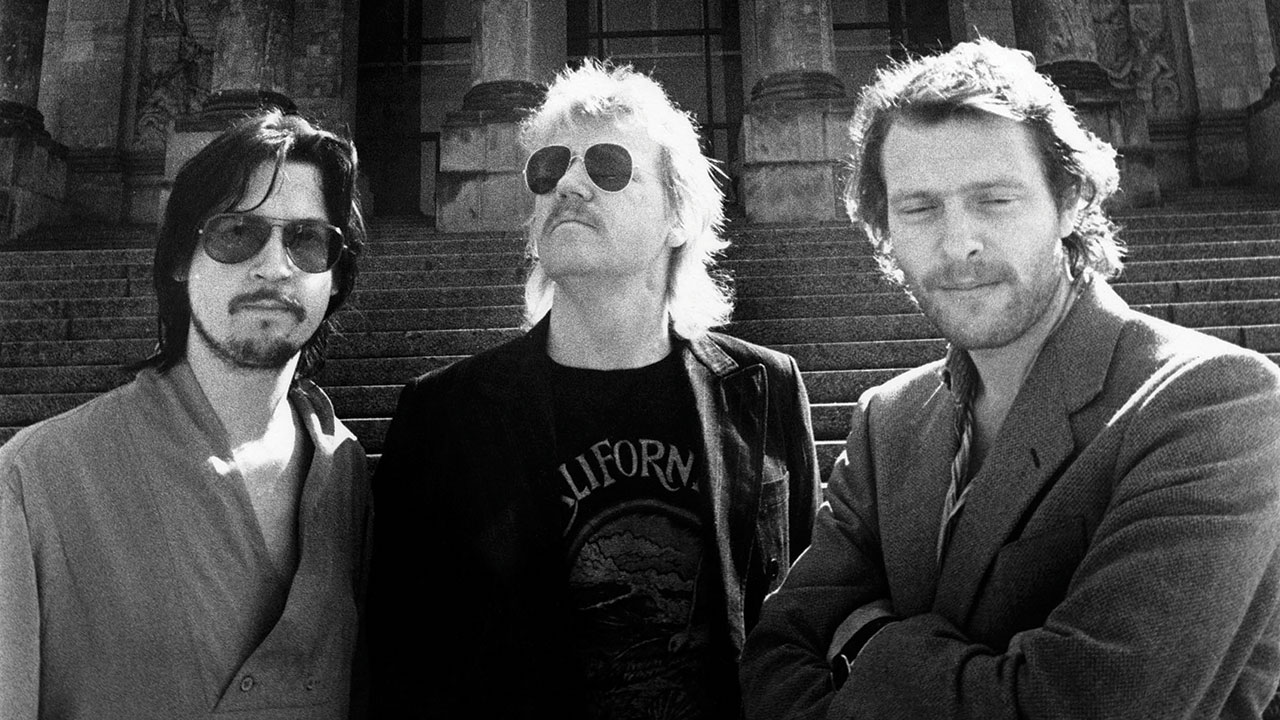
Tangerine Dreaming
How the German prog synth legends inspired the new Anathema album
“I was writing heavy guitar music and listening to stuff that’s not all heavy,” Dan explains. “The Mr Robot soundtrack, I was listening to that a lot. There’s a song by Tangerine Dream called Love On A Real Train that’s been a key song for me in this process. I fell asleep in the studio one night and Vinnie was playing Mr Robot and saying, ‘You’ve gotta see this show,’ and I wake up and this scene is on where the song comes on. And it’s just fucking magnificent.”
For about two months Dan was convinced they had to cover the song on the record. It was Vinnie who suggested they attempt their own version, rather than a direct imitation.
“I said, ‘Let’s try something of our own,’” Vinnie adds, “so Danny said, ‘Okay, give me a delay on my piano.’ And he just jammed it, forgot about it, we came up with San Francisco… That’s an example of how the aesthetic of this forward-moving train on Love on A Real Train.”
“It’s that idea of travelling forward all the time, permanent movement,” Dan continues. “And I saw a YouTube video that same night which is filmed on the front of an overground train in Tokyo, it goes all the way through the city for eight minutes. I’ve watched it 25 times, I’m not kidding.”
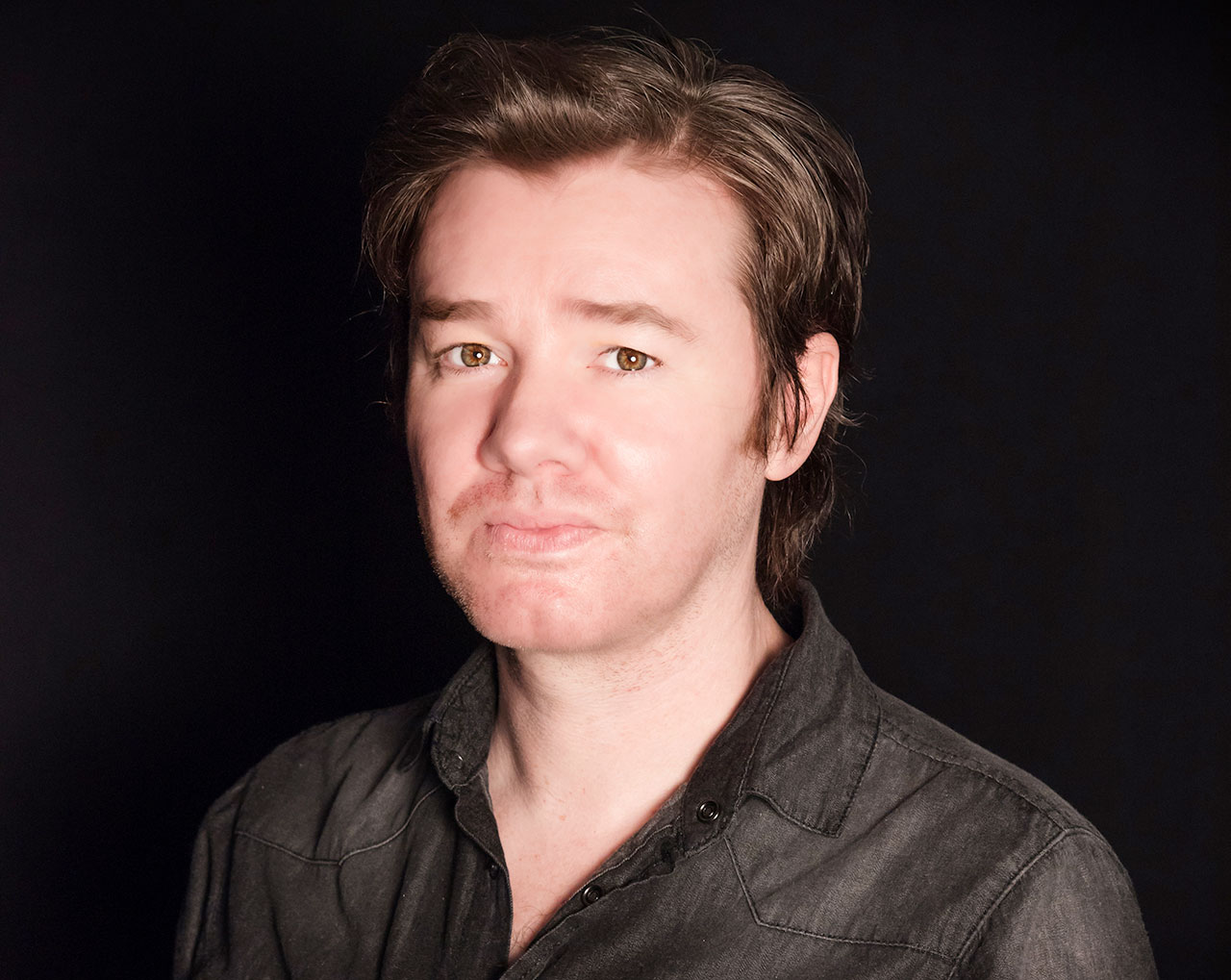
John Douglas: Anathema’s Hidden Gem?
Dan and Vincent on their drummer’s special talents
Dan remembers the time he saw Steve Wilson’s “jaw hit the floor”. The band were making 2010’s We’re Here Because We’re Here, with Wilson at the mixing helm, and it was revealed that Douglas “the drummer” wrote the stellar Universal. Indeed, both Cavanaghs are quick to praise their sticksman’s raw, untrained talent and songwriting input. Even if one demo did lead to the surprising budgie tweets and child’s chatter at The Optimist’s close…
“Some of John’s demos are funny,” Vincent nods, grinning, “with his budgie and his kid in the background and him trying to sing or play guitar!”
“He’s a fucking superb songwriter,” Dan agrees. “But it is like nailing a cloud to a wall.”
“Someone like Danny is really in tune with whats going on internally,” Vincent reasons. “But John, for instance, could be going through the same thing but he’ll never talk about it. He might put his thoughts in a song but he’ll never talk about it. You might know more about John, deeper things about him, reading his lyrics than you ever will if you get to know him.”
Anathema - The Optimist album review
Anathema: "We don’t write about politics. Our stuff is a personal story"
